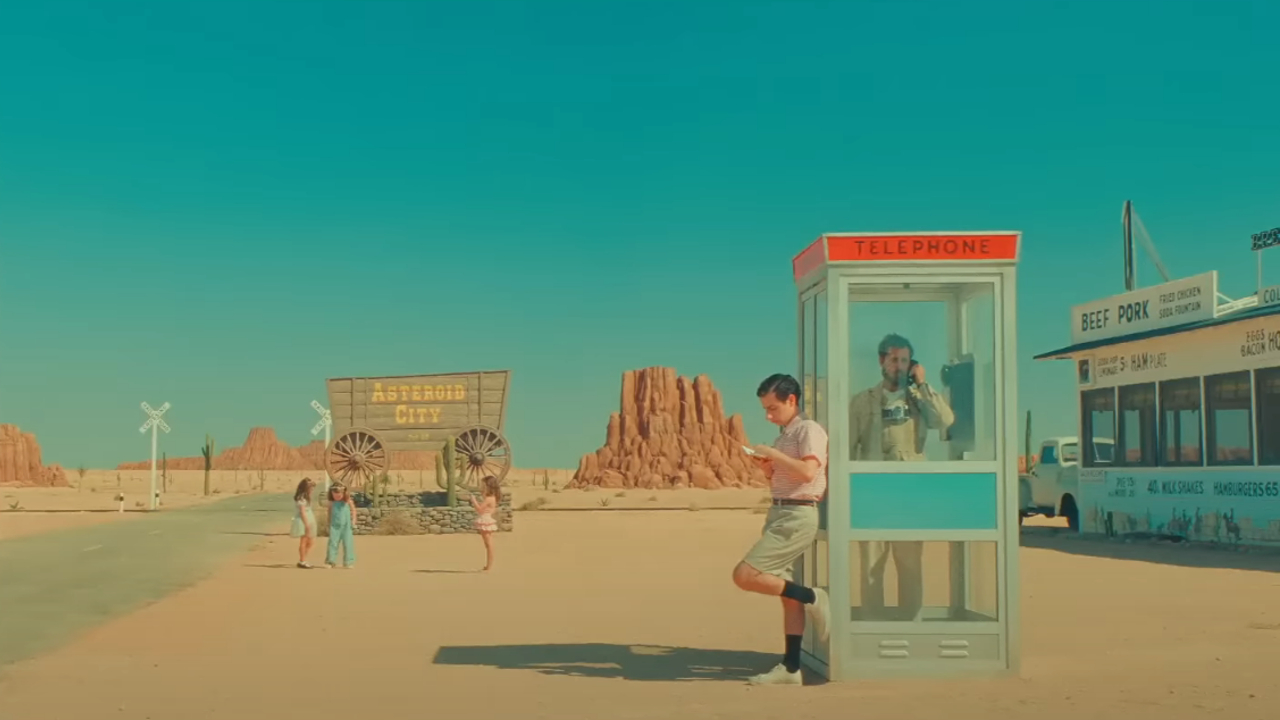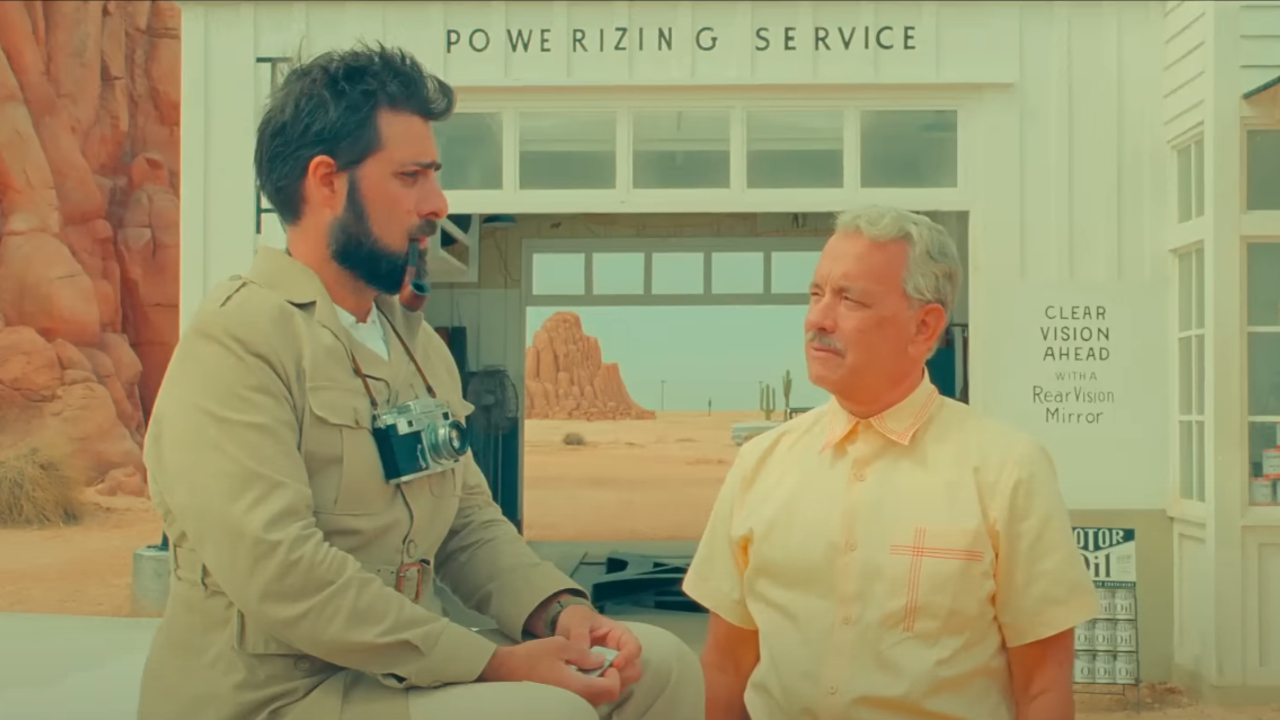
SPOILER WARNING: The following article contains major spoilers for Wes Anderson’s Asteroid City. If you have yet to see the movie, please exit stage left.
Wes Anderson has always been a director whose movies are filled with strange situations, stranger characters, and some ambiguous endings that leave you wondering if there’s some higher meaning or just eccentric and charming nonsense for the sake of nonsense. The same can be said for his 11th and most recent feature film, Asteroid City, which CinemaBlend’s Eric Eisenberg called a “meta, Looney Tunes-esque delight.”
The movie and its two simultaneous plotlines – a stage play centering on a Junior Stargazer convention in desert town of Asteroid City, and a black-and-white TV documentary about its conception and production – doesn’t offer a lot of answers about the point of the story, but instead leaves it open to debate by the audience. Though Anderson has yet to reveal the true meaning behind the Asteroid City ending (both in the play and the movie itself), we can offer our own interpretations and theories about its story and what it all means.
For the sake of clarity (and sanity), this piece will focus on our understanding of Asteroid City, the play within the movie.
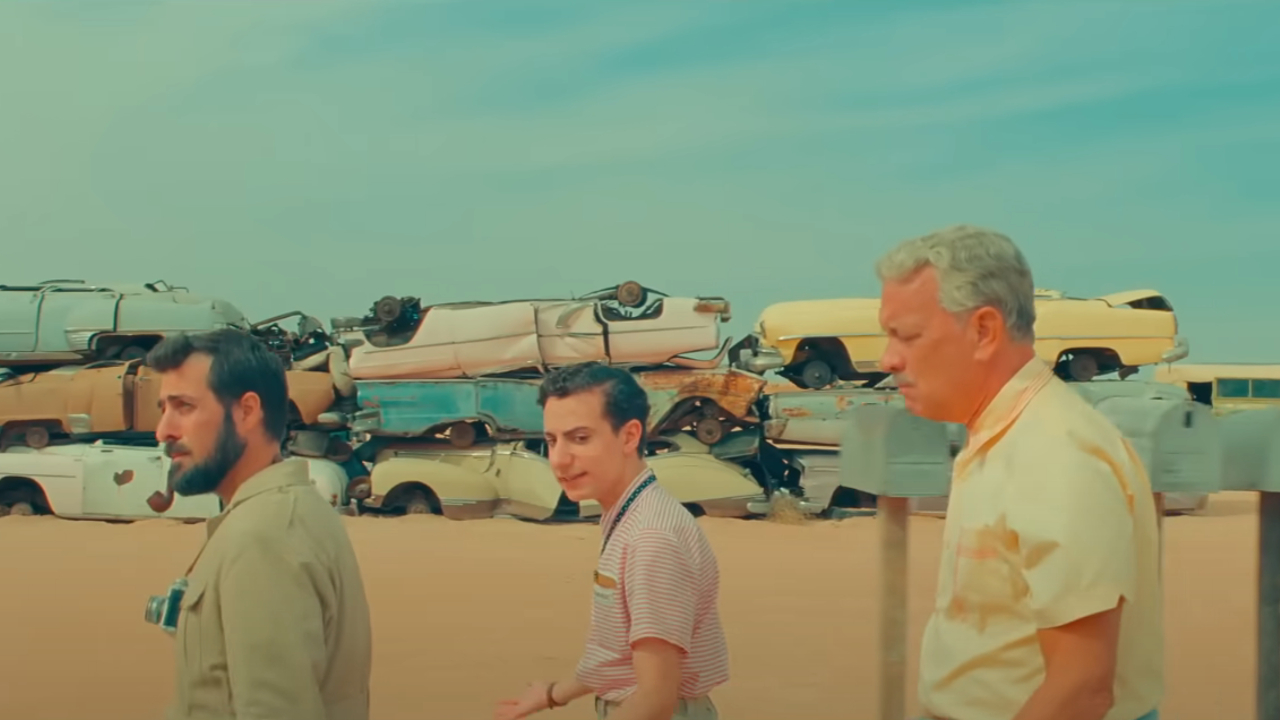
Asteroid City Is About Grief And Our Response To Trauma
There is a lot going on throughout the play at the center of the movie, but one of the plots that gets the most attention is the story of recently widowed war photographer Augie Steenbeck (Jason Schwartzman) coming to terms with the passing of his wife and his inability to tell his four children that their mother is dead, three weeks after her passing.
We all handle grief in our own particular way, and that’s very much the case for Augie and his family. While the photographer attempts to evade his grief by getting lost in his photography and budding romance with actress Midge Campbell (Scarlett Johnansson), his son, Woodrow (Jake Ryan) tries to figure out the mystery of a recent alien encounter, and three daughters act like witches and hold a burial ceremony for their mother’s ashes in the desert sand.
There’s also an argument to be made about the way in which the play tackles how we get lost in ourselves when it comes to grief and forget that those around us are also going through a grieving process of their own. This is backed up beautifully by an interaction between Augie and his father-in-law, Stanley Zak (Tom Hanks), who essentially tells his son-in-law that he isn’t the only one grieving.
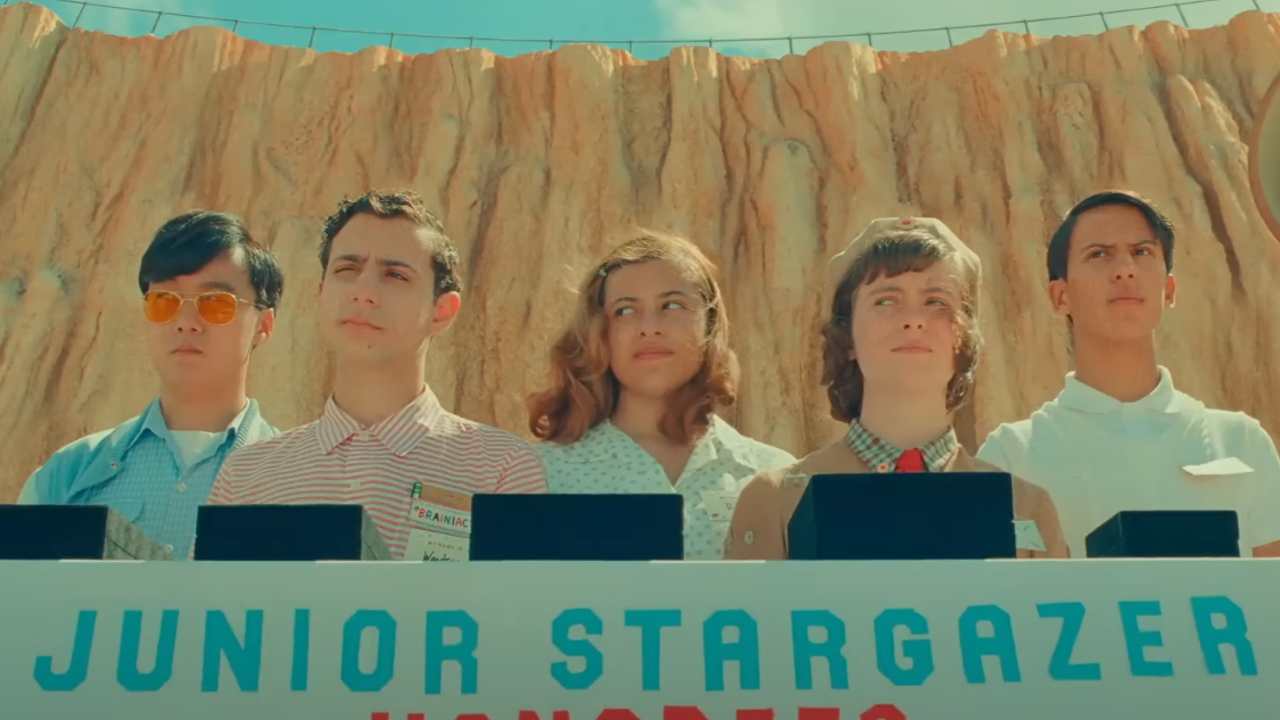
Asteroid City Is About Being An Outsider And Trying To Find Your Place
Throughout Asteroid City, we are introduced to countless characters who some would deem to be outsiders and not part of this world, both figuratively for the Junior Stargazers and literally for the alien who visits the town to take back a meteorite. One of the best lines illustrating the former comes part way through the movie (and is also in the film’s star-studded trailer) when the hyper-intelligent Dinah Campbell (Grace Ewards) opens up to Woodrow Steenback and says:
Sometimes I think I feel more at home outside the Earth’s atmosphere.
Throughout the play, the young geniuses are treated like aliens themselves, with even their parents not fully understanding them or the quirky ways. But together, the young wizzes find a sense of belonging with one another and their extravagant inventions.
While the Junior Stargazers, their parents, and everyone else in town is put into quarantine and not allowed to leave after the alien arrives, Stanley Zak seems to be in no rush to leave, saying “I like the desert, I like aliens.” In fact, the grieving father goes through a complete shift in character with the experience, as if he’s found his place in the world because of it.
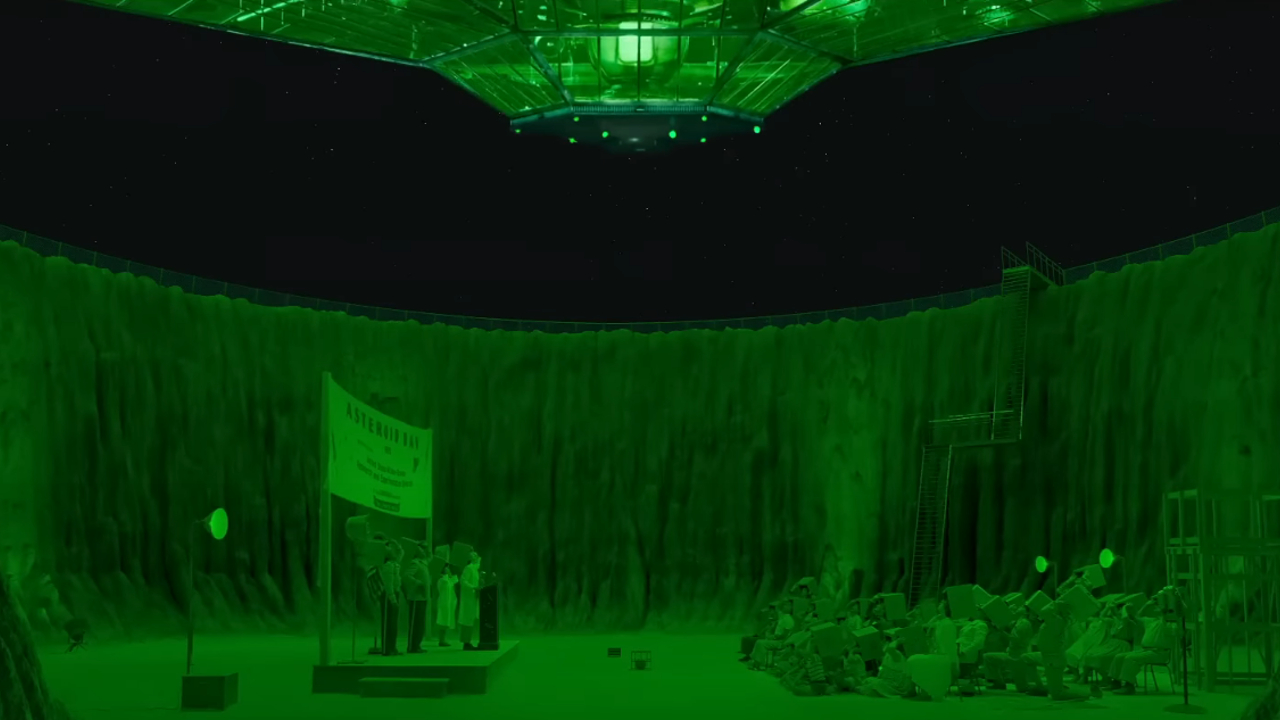
Asteroid City Is About Making Sense Of The Unknown
Near the end of Asteroid City, there’s a scene about the making of the play in which Jones Hall (also Jason Schwartzman), the actor playing Augie Steenbeck in the stage production, confronts the director, Schubert Green (Adrien Brody) and says:
I still don't know what the play is about.
Schubert, in an attempt to comfort the frenzied actor who was going through a bit of a crisis during the production of the play, responds with:
That doesn't matter. Just keep on telling the story.
Perhaps the most meta scene in the entire movie, this brief dialogue between a director and an actor trying to make sense of the unknown is one that tackles the play, the movie, and art in general. Much like the French Dispatch ending and its arguments about our understanding of art, the movie (and the play at its core) is about the quest for understanding, even if the thing we are trying to understand defies logic in the first place.
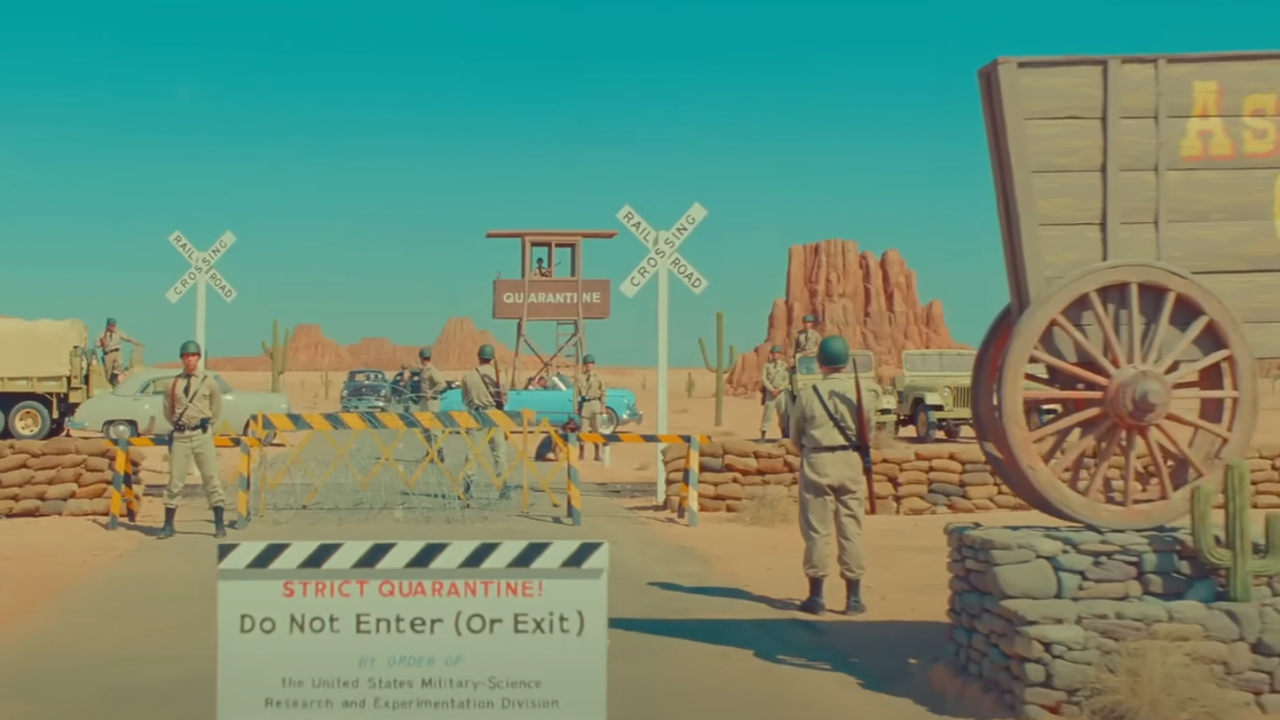
Asteroid City Could Be Seen As A Response To The COVID-19 Pandemic
After the alien visits the Asteroid City crater, the residents, visitors, and everyone else find themselves trapped in the desert town after the U.S. government puts them in quarantine until the situation can be figured out. This leads to some of the silliest segments of the entire movie, but it does feel as if it was the direct result of the COVID-19 pandemic and our collective experiences when we were asked to “shelter in place” three years ago.
During the movie's premiere at the 2023 Cannes Film Festival (via Deadline), Wes Anderson admitted that this aspect was inspired by the 2020 pandemic:
During the intense part of the Covid period, we were writing the script. I don’t think there would be a quarantine in the story if we weren’t experiencing it. It wasn’t deliberate.
All of the previous elements pointed out in the piece – grief, finding one’s place, making sense of the unknown – can be tied together with this idea of the movie being a response to, or at least, inspired by the COVID-19 pandemic. Though it’s not connected to the story per se, Bill Murray was supposed to be in the film but had to drop out because he came down with the virus, according to The Hollywood Reporter.
These are just a few interpretations of the meaning of the play featured in Asteroid City, but each of these ideas do add something to it, even if it’s just more conversation. Now that’ve you seen the film, it would be a good time to take a look at our breakdown of the 2023 movie schedule, which also includes Wes Anderson’s upcoming book-to-screen adaptation of The Wonderful Story of Henry Sugar by Roald Dahl.
